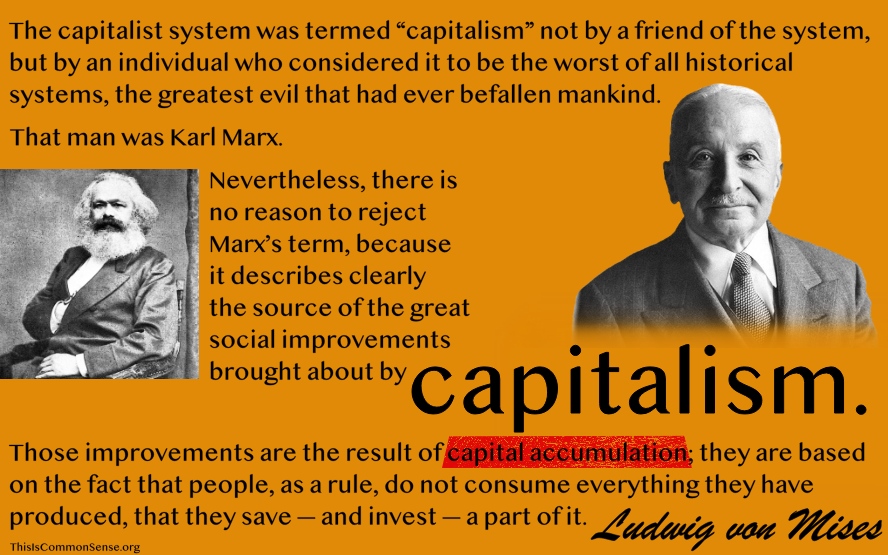The capitalist system was termed “capitalism” not by a friend of the system, but by an individual who considered it to be the worst of all historical systems, the greatest evil that had ever befallen mankind. That man was Karl Marx. Nevertheless, there is no reason to reject Marx’s term, because it describes clearly the source of the great social improvements brought about by capitalism. Those improvements are the result of capital accumulation; they are based on the fact that people, as a rule, do not consume everything they have produced, that they save — and invest — a part of it.
Ludwig von Mises, Economic Policy: Thoughts for Today and Tomorrow (1979; Third Edition: 2006),
Categories
Ludwig von Mises

1 reply on “Ludwig von Mises”
Von Mises was wrong about the origin of the term. Indeed, Marx seems to have used “Kapitalismus” just once, and then ambiguously. Other opponents of private ownership of the means of production are responsible for the coinage and popularization of the term.
Moreover, as v. Mises understood better than most but didn’t here note, for prosperity, the sorts of capital accumulated need to be driven by the decentralized coördination of the market. Von Mises’ own theory of economic depression explained depression as a consequence of poor choices in accumulation, driven by state distortion of financial markets. And the Soviet Union attempted to create prosperity by directing production away from consumer goods and into increased productive capacity; but Soviet investment was guided by a combination of the aping of more advanced nations with the guesses of technocrats, and with the corrupt purposes of state officials.